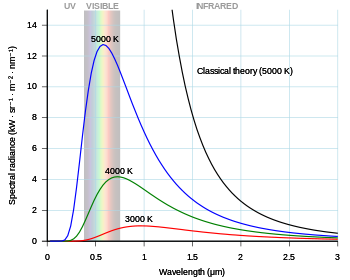New Mars Forums
You are not logged in.
- Topics: Active | Unanswered
Announcement
#1 2018-11-16 19:07:07
- tahanson43206
- Moderator
- Registered: 2018-04-27
- Posts: 23,694
Three Scientific Standards Redefined
Because some members of this forum occasionally cite scientific constants in discussion, here is an update which may be of interest:
https://www.engadget.com/2018/11/16/kil … redefined/
(th)
Offline
Like button can go here
#2 2018-11-16 21:52:25
- Void
- Member
- Registered: 2011-12-29
- Posts: 9,125
Re: Three Scientific Standards Redefined
Nice. Thank goodness I don't have to care much anymore, retired ![]()
Is it possible that the root of political science claims is to produce white collar jobs for people who paid for an education and do not want a real job?
Offline
Like button can go here
#3 2018-11-16 23:05:32
Re: Three Scientific Standards Redefined
I love this, especially the redefinition of the ampere. I think it's getting less attention because the current definition of the ampere is so confusing, but the new definition is way better.
They say "as excited as metrologists can be" and I'm sure excited.
I actually just learned the metric system's motto: "For all times and for all people". What a great sentence.
-Josh
Offline
Like button can go here
#4 2018-11-17 06:43:34
- Terraformer
- Member
- From: The Fortunate Isles
- Registered: 2007-08-27
- Posts: 3,988
- Website
Re: Three Scientific Standards Redefined
I hope they also remember to redefine the metre as a multiple of the planck length, as well, and the second as a multiple of planck time.
Use what is abundant and build to last
Offline
Like button can go here
#5 2018-11-19 14:52:43
Re: Three Scientific Standards Redefined
Isn't it the case that we can't actually measure either of those and that they're calculated from things we can measure or calculate? Makes it kind of hard to use them as standards of measurement
-Josh
Offline
Like button can go here
#6 2018-11-19 16:44:16
- SpaceNut
- Administrator
- From: New Hampshire
- Registered: 2004-07-22
- Posts: 30,075
Re: Three Scientific Standards Redefined
Planck Constant characteristic of the mathematical formulations of quantum mechanics...
https://en.wikipedia.org/wiki/Planck_constant
Planck’s constant, fundamental physical constant characteristic of the mathematical formulations of quantum mechanics, which describes the behavior of particles and waves on the atomic scale, including the particle aspect of light. The German physicist Max Planck introduced the constant in 1900. The Planck constant (Planck's constant) links the amount of energy a photon carries with the frequency of its electromagnetic wave.
Planck's constant, symbolized h, relates the energy in one quantum of electromagnetic radiation to the frequency of that radiation.. In the International System of units (), the constant is equal to approximately 6.626176 x 10-34 joule-seconds.In the centimeter-gram-second or small-unit metric system, it is equal to approximately 6.626176 x 10-27 erg-seconds.
E is the energy of the photons and v and λ the frequency and wavelength of the wave; c is the speed of light in a vacuum.

Ya I do agree JoshNH4H its not a constant as we know that time is what many things are measured to and that is changed by gravity...
Offline
Like button can go here